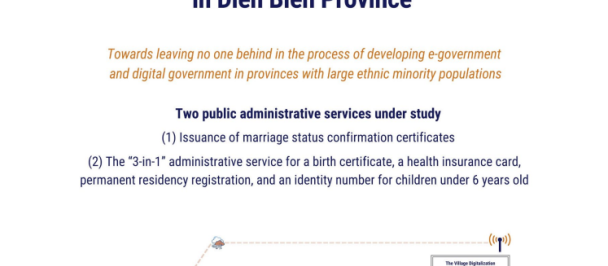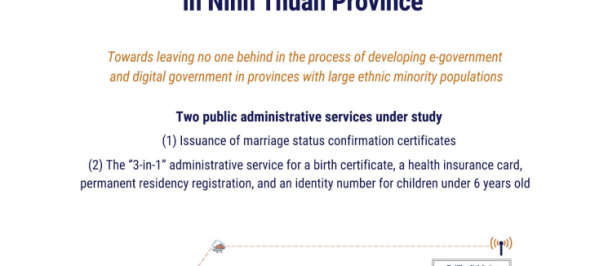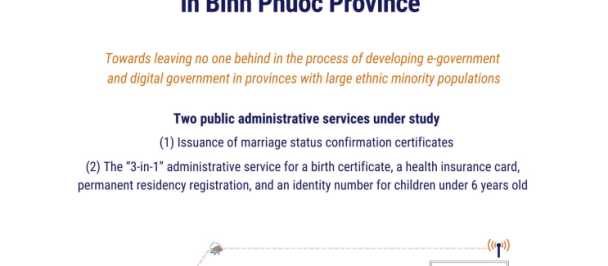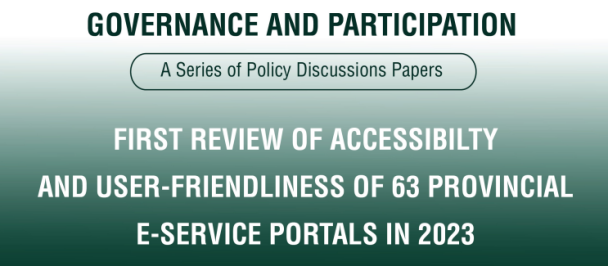Opening Remarks by UNDP Resident Representative Ramla Khalidi on behalf of United Nations Resident Coordinator in Viet Nam
Legal Partnership Forum on Digital Transformation in the Justice Sector
March 21, 2023

Mr. Nguyen Thanh Tinh, Deputy Minister, Ministry of Justice of Viet Nam
Mr. Nguyen Huy Dung, Deputy Minister, Ministry of Information and Communications
Excellency Mr. Giorgio Aliberti, Ambassador of the European Union in Viet Nam
Distinguished Guests, colleagues, and partners,
Xin chao! Good morning!
First of all allow me to extend the sincere regrets of the UN Resident Coordinator in Vietnam Ms. Pauline Tamesis who was unable to join us this morning, and has asked me to represent her at today’s Legal Partnership Forum, a high-level dialogue between the Government of Vietnam, the United Nations, the European Union, and other development partners to discuss how Digital Transformation can contribute to increase the consistency of the legal system, heighten awareness of legal rights, and improve access to justice for vulnerable communities.
For years, UN agencies have worked with the Government of Vietnam to support vulnerable populations, and in particular persons in remote areas and persons with disabilities. Our support aimed at enhancing access to basic services, including healthcare, education and social protection, promoting better economic opportunities, AND improving access to justice.
On the screen, you will see two images:
The first photo was taken at the remote Ban Phung Commune Health Station in Hoang Su Phi District, in Ha Giang Province. It shows a grassroots telemedicine session using the "Doctor for Everyone" software to provide telehealth services for women in remote areas. The software was developed with support from the UN.
The second image is of a software that helps persons with disabilities register for disability benefits, and more efficiently gain access to social protection schemes.
The two examples illustrate how the UN is using technology to facilitate access to services, advance the Leave No One Behind Agenda and support the Government accelerate towards the achievement of the SDGs.
Inspired by these examples, we could, for example, explore the potential of software that provides “Legal Aid for Everyone”.
We could conceive of software that allows people to more easily register for legal aid or request the enforcement of civil judgements.
Using technology in this way can support the application of justice standards and improve the relationship between institutions and citizens.
Distinguished guests,
Digital transformation is not the provenance of a single sector or ministry or province. As reiterated frequently by Vietnam’s leadership, digital transformation is the strategic vision of the country as a whole.
I would like to take this opportunity to congratulate the Government of Viet Nam for its tremendous effort in embarking on this ambitious journey to Digital transformation by 2025.
We believe it can contribute to achieving the objectives of building a modern and professional justice system that is transparent, accountable, and accessible to everyone. When well conceived and designed, Electronic Justice initiatives can effectively expand access to justice for individuals and communities who have historically been left behind.
While operation efficiency is essential, the core focus of digital transformation must be on the impact it has on access to justice, equality, and human rights. While e-justice initiatives might address the needs of some communities left behind in conventional court operations, there are real risks that technology leaves others out of the evolution of public services. I am glad that in the forum today, risks will be thoroughly discussed. This will help Vietnam to learn lessons from other countries.
Looking ahead, we would like to suggest some steps to consider for the digital transformation in the justice sector:
First, Ensure inclusive policies and procedures on digital transformation in justice to ensure that No one is left behind.
Second, and very much related, Advance access of digital justice to women and girls who are left behind as the result of a digital gender divide.
Third, Put people at the center of the digital transformation efforts. All of the innovations must be user-centered, protect personal data and ensure confidentiality.
Fourth, Build stronger partnerships between government, businesses, social organizations, and communities to increase knowledge, test ideas, and expand dialogues.
And Finally, Build capacity of justice professionals to use new technologies and adapt to new working methods.
In closing, allow me to offer a very special thanks to our implementing partner – the Ministry of Justice and to thank the EU Delegation in Viet Nam for their generous support to this important Justice and Legal Empowerment Programme (in short - EU JULE).
We are committed to standing alongside the Ministry of Justice and the partners in this important process towards delivering a transparent and accountable justice system for all and to achieve the Sustainable Development Goals by 2030, especially SDG 10 on Reduced Inequalities and SDG16 on Peace, Justice, and Strong Institutions.
Wishing you all good health and success.
Xin cam on!

 Locations
Locations



